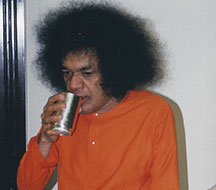
Swami on the Culture of Bharat
Puttaparthi, Sai Kulwanth Hall (Ladies Day )
Description
The very culture and tradition of Bharat is that, it has inculcated this one and only Love. And it has given importance to Women. We have got to recognize the important place given to women. Is Harischandra here today who walked the path of truth? Nobody can remain forever. Every body is like a water bubble. If not today, tomorrow every body vanishes. Do not think the body which perishes is permanent. You have got to inculcate the faith that there is something within that is permanent, within the body. You have got to recognize this truth. Whichever country the woman belongs to, you have got to save the culture and foster the culture of the land. That's what Rama said. Everybody should foster and protect the culture of their own land. My Mother and my Motherland are dearer than Heaven for me. Motherland is Mother, Culture is Father. So we should not forget the mother and the father, the culture and tradition. We cannot have mother without the father and the father without the mother. Without them there are no children. The Motherland is the mother and culture is the father. That's why they say motherland, nobody says fatherland. They say mother-tongue not father-tongue. So the mother has got that important place. This is the culture of India. We are trying to forget this sacred culture. The culture of Bharat is that, which tries to disseminate to the whole world that all men should be happy always. You can worship God in any way. God is not different, He is only One and only One.
Topics
-Culture
-
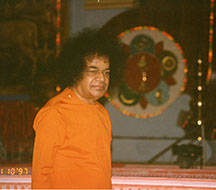
What is Sukla Paksha and Krishna Paksha
00:02:51Each month is divided into two “paksham”, fortnights. One is called as the “Sukla paksha”, the bright fortnight and the other is the “Krishna paksha”, the dark fortnight. What is meant by Sukla paksha? During the Sukla paksha, the moon is directly facing the Sun, causing the radiance of the Sun to be reflected on Moon in all its glory. The moon then shines forth radiantly in all its sixteen aspects. Staying close to the life, Sun, sixteen aspects of the moon, the living being, becomes wholesome and shine forth in full splendour as ‘Poornima’. On the new moon day, the moon vanishes into the Sun. (the moon is not seen at all). Moon completely merges in the Sun and hence it is not seen. From the full moon day, the aspects of Moon wane gradually and so, that fortnight is called as “Krishna paksham”, dark fortnight. From the new moon day onwards the aspects of Moon gradually get bigger, it is called as the bright fortnight, the “Sukla paksham”. The bright fortnight can be referred to as the life element and the dark fortnight as the living being. The combination of life and living being forms the world. All this are the effects of the will of Prajapathi.
-
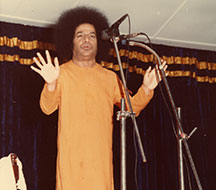
Good culture leads to good qualities
00:00:58If we wish to possess a good heart, it is essential to move in a good company. At times, however, good may appear as bad and bad as good! It is difficult to discern who is good and who is bad. Good behavioural norms, good living, good speech are indicators, to some extent, of a good person. Hence every human being must nurture culture. Such a nature keeps one away from bad habits and instils good qualities.
-
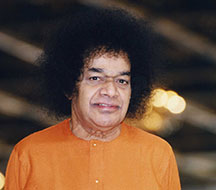
Modern day practices in spirituality and demoralisation of Indian culture
00:03:35Embodiments of the sacred soul! Students!! To follow a spiritual path is the desire of all, but strangely, the people as well as the rulers are adopting meaningless new methods, causing great surprise and ridicule. People, unable to understand the Indian culture in its true perspective, are merely opting for attractive appearances by way of good clothes, usage of deceptive words and are losing self confidence by indulging in atheism. Such people who spread atheism have borrowed ideals and rented ideas thereby causing people to lead artificial lives. Modern civilisation has taken a turn by which it gives twisted and incorrect interpretation of Indian culture. These individuals are very anxious to acquire positions of authority. They are not considering the need for fulfilling any of their responsibilities or duties. For a person who understands his duty and responsibility, it follows automatically that he will, in due course, get a position of authority; but the real understanding of the essence of nature eludes the one who does not understand his duties and who only aspires for position and authority.
-
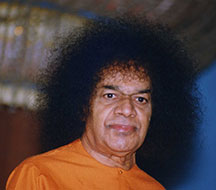
Indian culture taught humanity to see God in everyone
00:02:55Since ancient times, the Bharatiyas have spread their sacred culture all over the world. This culture does not consider god as one. “Sahasra seersha purushaha sahasraksha sahasra path” God is viewed and experienced as many. God is not merely one. It is the manifestation of one in many. God is present in every head and in every heart So, one should not think that God is only present in sanctum sanctorum like the church etc. In fact every human heart is the residence of God. “Daiwam maanusha roopena!”—God is in human form. One criticises others not knowing that in him too God resides likewise one also exults others. The vedas then revealed, “Who is that one is criticising and adoring? One thinks that one is abusing one’s abuser and adoring one who is worthy of one’s love. No, it is not so. One is abusing and hurting oneself when one is abusing and hurting others. The Lord who is in the person whom one adores is also present in oneself. Therefore abusing others is equivalent to abusing oneself and loving others amounts to loving oneself. Hence one must refrain from abusing others as it comes back. One must think that abusing others is abusing God as He is omnipresent. “Sarva jeeva namaskaram kesavam prathigachchati— whomever one salutes, it is received by the In dweller.” It is the main aim. When one respects others it in fact reaches the God. “Sarva jeeva tiraskaram kesavam prathigachchati – denying anybody amounts to denying the Lord.” One is under the misconception that one hates someone else, but in reality one hates oneself.
-
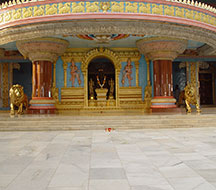
What is true culture
00:00:47The culture of Bharat emphasizes unity and not multiplicity. It is not the diversification of unity. We have to consider the unity in diversity. That is true culture. What is the meaning of culture? It is not anything to do with religion. It is related to the heart. Culture has got nothing to do with ideology, caste, religion, faith or devotion whatsoever. It relates to divinity.
-
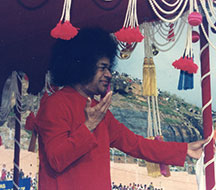
Foster the culture of Bharath; Analogy of paddy and cloth
00:02:41You must also give importance to culture and refinement. Earlier, the Vice Chancellor spoke about the culture of Bharat. He crisply summarised the essence of many ancient texts. Bharatiya (Indian) culture is timeless, sacred, deep, profound, full of inner strength, and provides full protection. Today, we are losing our grip over such a great culture. Instead of ignoring and brushing it aside, we must do everything possible to nurse and foster it. Refinement accumulates and manifests as culture. Here is a cloth [at this point, Swami showed His handkerchief]. It has been woven from yarn. Where did the yarn come from? From cotton. By processing cotton, one gets yarn. By further processing yarn, one gets cloth. Likewise, this table has come from wood that has itself come from a tree. Refinement comes about only through processing and shaping. Farmers grow paddy. Can you eat raw paddy? No; it has to be polished first and then cooked before it is eaten. In life too, refinement is necessary. And culture is nothing but accumulated refinement. Bharatiya culture is ideal in this respect, and worthy of being followed by everyone at all times. Therefore, with God’s Name on your lips, and unshakeable faith in your heart, acquire kshama, allowing it to manifest as daya or compassion.
Topics
- Analogies
- Atma
- Attachment
- Balvikas
- Bhaja Govindam
- Bhajans
- Body
- Character
- Company
- Compassion
- Day to day
- Desire
- Devotees
- Devotion
- Dharma
- Discipline
- Discrimination
- Doctors
- Education
- Faith
- Festivals
- Forbearance
- Gayathri
- God
- Gratitude
- Guru
- Health and healthcare
- HIS Life
- Human values
- India
- Karma
- Love
- Mahabharata
- Man
- Meditation
- Mind
- Music
- Musicians
- Namasmarana
- Nature
- Parents
- Philosophical concepts
- Pleasure and Pain
- Practice
- Ramayana
- Religion
- Sacrifice
- Sadhana
- Sai Organization
- Saints
- Sathya
- Science
- Senses
- Service
- Sevadal
- Shanthi
- Shirdi Baba
- Society
- Spirituality
- Students
- Thoughts
- Time
- Unity
- Upanishad
- Vedas
- Vices
- Yoga
- Youth
